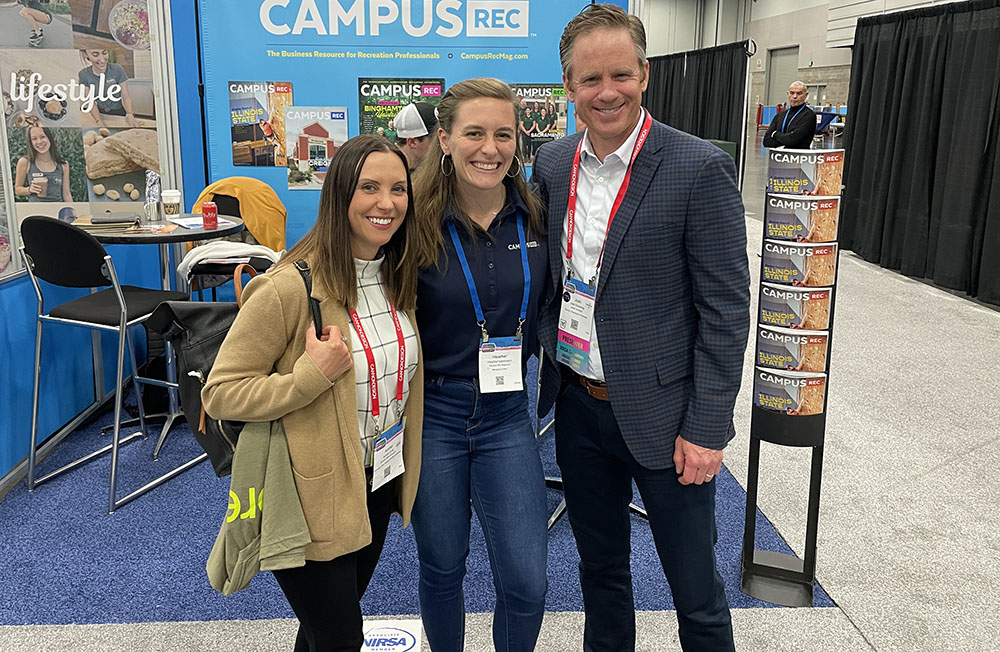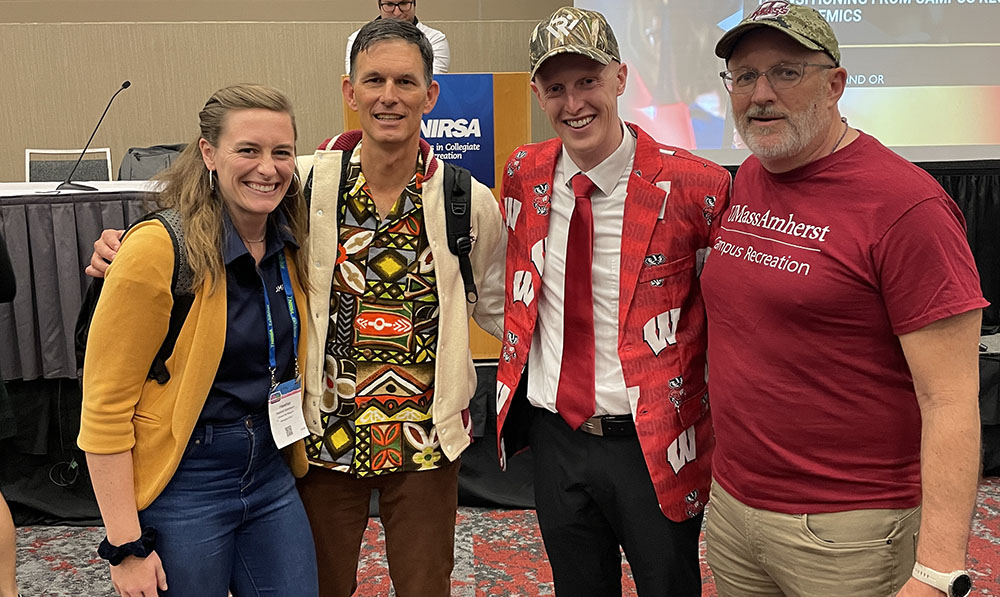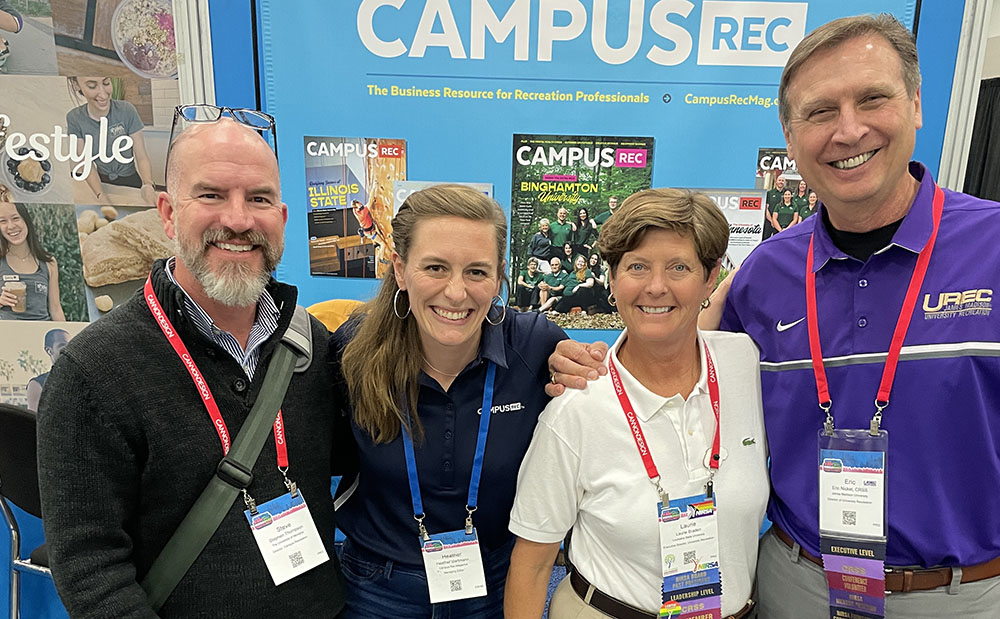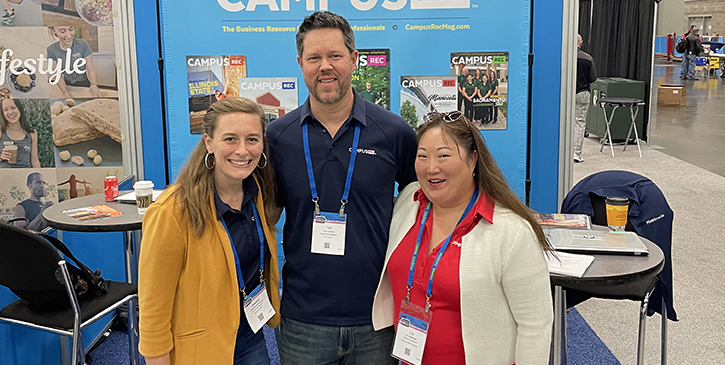Last week, the industry gathered in Portland, Oregon, for the first NIRSA conference since 2019.
Separated for years, it was truly an amazing experience seeing so many of you for the few days we were together. I can’t even begin to explain what each interaction meant, what your words of encouragement and your smiles said to me.
However, I think many of you felt the same way. I hope we never again take for granted what it’s like to be able to meet in person and see one another’s smiling faces.

During last week’s conference, I learned and saw a lot. There were a plethora of sessions to attend, many about equity, diversity and inclusion’s various aspects. In fact, I wanted to share several takeaways from the panel discussion I attended, “Do I Belong Here? Ways to Create an Inclusive Work Environment.”
Key Takeaways:
- Jim Wilkening, the executive director of Recreation and Wellness at the University of Central Florida, said when he is hiring, he asks people to define diversity and their expectations of a diverse workforce. Even more, you have to be OK with hearing the hard stuff. “You need to ask the questions and be willing to take the answers,” he said.
- Intentionally meet with all of your staff one-on-one and ask, “What do you wish I would have done?” shared Jess Ward, the director of Campus Recreation at Princeton University. In addition, make sure staff have someone they can go to outside of the department.
- Don’t miss the step of reflection both with yourself and with others, shared Leah Hall Dorothy, the director of Recreational Sports at Oregon State University.
- Wendy Windsor, the director of Campus Recreation at Tulane University, said her and her staff have a set of questions on their desks they ask in creating goals and/or programs. These include “Was this designed with equity in mind?” and “Who benefits from this? Who is disadvantaged?”
I was also able to attend a creative session on change management, which was in a game-show format. It was highly entertaining and educational.
Three directors brought up staff and all got honest about how they thought the director led over the past few years. When I chatted with them afterwards, they talked about how the idea was sparked in a casual discussion and I applauded them for their vulnerability.
Below are the three directors and the change management styles they followed:
- Steve Bobbit at the University of Massachusetts Amherst: “Leading Change” by John Kotter
- Aaron Hobson at the University of Wisconsin-Madison: “Step Change: The Leaders Journey” by Alan Watkins
- Alex Accetta at Stanford University: “The Infinite Game” by Simon Sinek

Finally, more vulnerability took place in the final session I saw, “Succeeding as a Leader When You’re Always in Crisis Mode” led by Moe McGonagle, the director of Campus Recreation, CENTERS LLC at DePaul University, and Stan Shingles, the assistant vice president of University Recreation at Central Michigan University.
First, they gave many strategies for leaders while in crisis mode:
- Rely on credible information.
- Lead from the front.
- Act decisively.
- “We’re better off knowing the truth than being ignorant in the dark,” said McGonagle.
- Practice empathy and humility.
- Be optimistic about the future.
- “There is no better training to managing in crisis than media training: stay on message, stay on message, stay on message,” shared Shingles.
Then both they and the audience shared personal stories of leading through a crisis, from student deaths to natural disasters. It was heartbreaking to hear about what has happened, but it was a powerful and vulnerable time. The level of authenticity was amazing, and I can see the industry’s leaders continually growing in this capacity.
In Conclusion
This is just a fraction what NIRSA 2022 brought to the table. From the new products and fabulous vendors in the Exhibit Hall, to the fitness sessions and socials, there was so much to be learned and gathered.
However, if I had to pick one overarching theme it is a simple one: Relief in being back together.
Yes, the industry is tired and things are far from over — new challenges are cropping up with declining enrollment, budget cuts and the Great Resignation — and yet, there is something powerful about gathering. It is something humans have done from the beginning: gather.
And if nothing else, this week of gathering was rejuvenating for the soul. For many, including myself, it was what we needed at the core to refuel as we press on to change the world.











